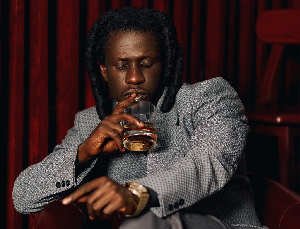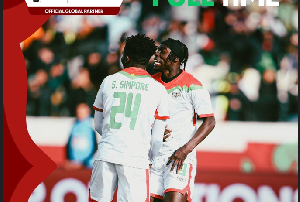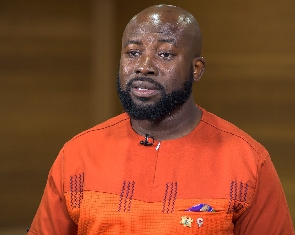From empirical viewpoint, justice delivery in Ghana oftentimes follow the pattern of the analogies below. Should this pattern continue, without radical measures employed to reverse it for the better, then Ghana, my beloved motherland, will continue to be light years away from credible advancement that will make Ghanaians and Africans be seen and respected as rational beings rather than our current factual state of subhuman.
Many a Ghanaian may see me as very critical of the Ghanaian or the black person, although a Ghanaian or black person I am. Yes, I had better truthfully be critical of my kind if, and only if, it will help change our deplorably negative prosperity-retardant attitudes, the continuation of which denigrates us in the eyes of our contemporary whites.
It hurts to tell the truth but in the end, it brings comfort. If my truth will hurt you to begin to behave responsibly as human being, then I will persist in doing so rather than telling you sweet lie that encourages you to stagnate and wobble in intellectual and material deficiency or underdevelopment, only to be seen, treated, and mocked as subhuman by others.
In the first analogy, I shall mention, in assumption, the names of my Kumawu Roman Catholic Primary School teachers as the characters, in tribute to them. In an examination, and among the questions, there was one question as below.
How many real primary colours do we have as are internationally accepted, and documented? This question was set by Teacher Appiah Kubi (late), from Asante Mampong.
A) 4 – Red, Blue, Yellow, Green
B) 5 – Red, Green, Orange, Violet , Blue
C) 3 – Red, Blue, Yellow
D) 6 – Red, Blue, Yellow, Purple, White, Black
Some pupils in Teacher Appiah Kubi's class chose "C" for an answer while those in Teacher Oppong's class chose "A". Teacher Oppong was from Effiduase-Asamang in the Ashanti region. Each teacher argued in favour of their pupils' choice of answer as right. The issue was referred to Head teacher (Master) Osei Kufuor to be resolved. He supported the view of Teacher Oppong, citing the practical experience of pupils being grouped into sections of Red, Blue, Green and Yellow at schools, since time immemorial, to buttress his contention. However, a year later, when Head teacher (Master) Antwi Agyei replaced Master Osei Kufuor after he has been transferred elsewhere, the problem was referred to him for review.
He said the answer is "C". He argued that there are three primary colours which are Red, Blue and Yellow while Green is a secondary colour derived from mixing Blue and Yellow together. He argued further to explain that the fact that pupils have been introduced and known to, as well as grouped into, four section colours of Red, Blue, Yellow and Green does not make Green a primary colour. He quoted from professional, acceptable and standard books to support his claim.
The above is just an analogy to explain my point but the characters are real; not the question posed and the explanations.
Going back, such is the character of some Ghanaian lawyers and judges. There could be a law written in the statute books which is required to be adhered to in toto. However, you will see some lawyers arguing differently, trying to compel the court to accept what goes on in the ground, although not in conformity to what is written in the statute books, for reference and practice to inform the court's judgment.
Some judges for various reasons, either for lack of ethics, professionalism, or because of inducement of some sort or bias, may decide to do the contrary to what the law explicitly states, and may still want people to accept their decision as final because they hold one's life in their hands at that critical moment and can make it or break it. This behaviour is totally wrong and must be criticised or condemned whenever and wherever it is possible.
Another analogy goes thus, there are four cloths of different colours. They are black, red, white and blue. There is instruction that categorically states that if you take any of the cloths, but not the black, you will not be accused of theft. However, if you take the black one, you will be accused of theft, arrested, prosecuted, convicted and sentenced to a fine or a jail term.
Nevertheless, one Kofi Agyei decided to take the white, red and black cloths. He was arrested and put before the court for theft. His lawyer argued that he is not in the wrong since a cloth is a cloth and the instruction allows him to take some of the cloths. You will get a judge to side with this lawyer by way of application of unnecessarily irresponsible delay tactics of adjournments. Why this, if I may ask? Does the instruction not forbid one from taking the black cloth but all or any of the others? Why should some lawyers and judges try in their own eyes to be great, playing God, by twisting the laws to suit their ego or selfish-interest while indeed, they are belittling themselves in the eyes of more knowledgeable persons?
The law is the law. And, the law must be respected same as it is written without the usual "add ons" or minuses. It is by applying the laws or interpreting them as they have been written and agreed that Ghana can be safe, prosperous, and enjoyable to all.
Going forward, it must be noted that there is a Chieftaincy Act in Ghana (Act 759). Under Act 759, it states in black and white what the "Cause or matter affecting chieftaincy" is. If someone kills a rival in chieftaincy dispute, will the murderer be arrested and put before the courts or will be arraigned before the Judicial Committees of the Regional or National Houses of Chiefs? Although the murder came about as a result of the chieftaincy, does it fall under the "Causes or matters affecting chieftaincy" that the lower courts up to the Appeal Court are barred by the Constitution from hearing and ruling on?
Finally, let all of us, including Ghana lawyers and judges, note this one sacrosanct legal dictum - "Fraud vitiates all contracts", and abide by it in our judgments.
Should my mentioned school teachers still be alive, I think Master Osei Kufuor may be 95 to 100 years old; Master Antwi Agyei may be over 90 years old while Teacher Oppong may be 74 years old and above. I dedicate this publication to them, especially, posthumously to Teacher Appiah Kubi, whose patience, dynamism and dedication to work moulded me into the fearless, confident and intelligent person I am today. All my efforts to locate him when he left Kumawu for further studies, to sit down and chat with him as two adults in congratulation and appreciation of his beneficially skilful teachings that have shaped me into my current status, proved futile. I was only to hear about him, but sadly his death, a few months ago, although he had passed away several years ago. May his soul rest in perfect peace in the bosom of patriarch of righteousness, Abraham.
Opinions of Monday, 19 October 2020
Columnist: Rockson Adofo















